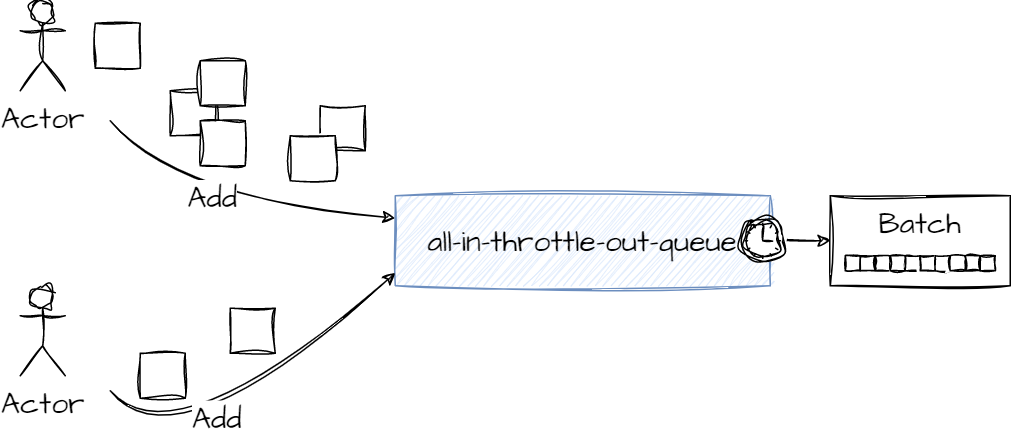all-in-throttle-out-queue v0.0.3
All-in-throttle-out-queue TypeScript
A queue that take all the input it receives and wait a specific time to output the result

Use cases?
Network Calls
Add multiple data in the queue, then after some times take a batch of data to send to a network call

User Interface
For user movements/actions to send 1 payload instead of multiple to avoid traffic and lags but still capturing every piece of data
How to Use?
Install with NPM:
npm install --save all-in-throttle-out-queueThe project is in TypeScript. The build contains an ESCommon and CommonJS version with .d.ts
// Create the queue with the type you want to hold. E.g. `number`
const aitoq = new AllInThrottledOutQueue<number>((batch: number[]) => {
// The function is called after 1000 seconds of the first add
console.log("Here is the list of number from the last 1000 seconds", batch);
}, 1000);
aitoq.add(1); // Will start the internal timer of 1000 milliseconds (see the second parameter)
aitoq.add(2); // Will be batched in the queue
// After 1000 seconds of the first call, the function is called with the argument [1, 2]Timer
The timer is not always running. If there is many call to the add function, the first time the AllInThrottledOutQueue detects that there is no timer and start one. Until the throttleling is completed (function is called) there is always only a single timer. A new timer is only executed if there is another add called once there is no timer.
// t=0
aitoq.add(1); // Start timer
//t= 100
aitoq.add(2); // Time is still < 1000, same timer (batch)
//t= 1001
//Function called, batch released and back to an empty queue with no timer
//t= 2000
//Still no timer, no need, nothing in the queue
aitoq.add(3); // Start timer



